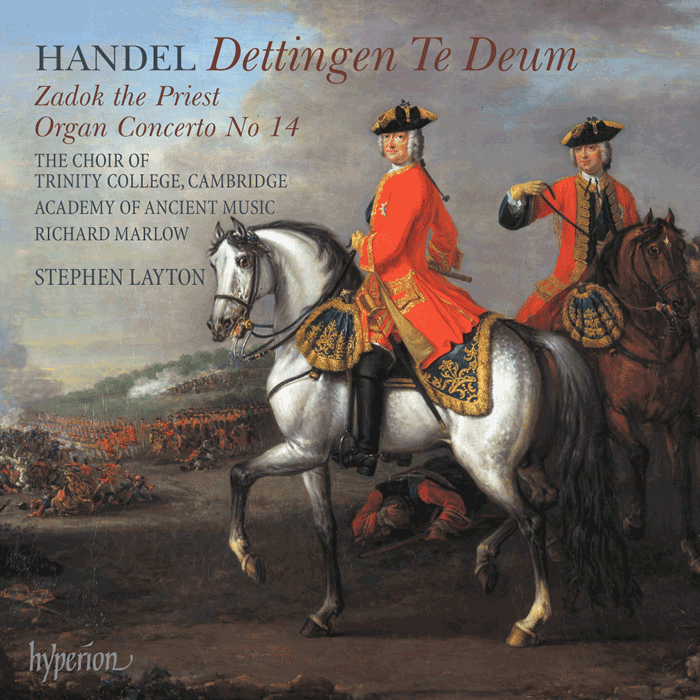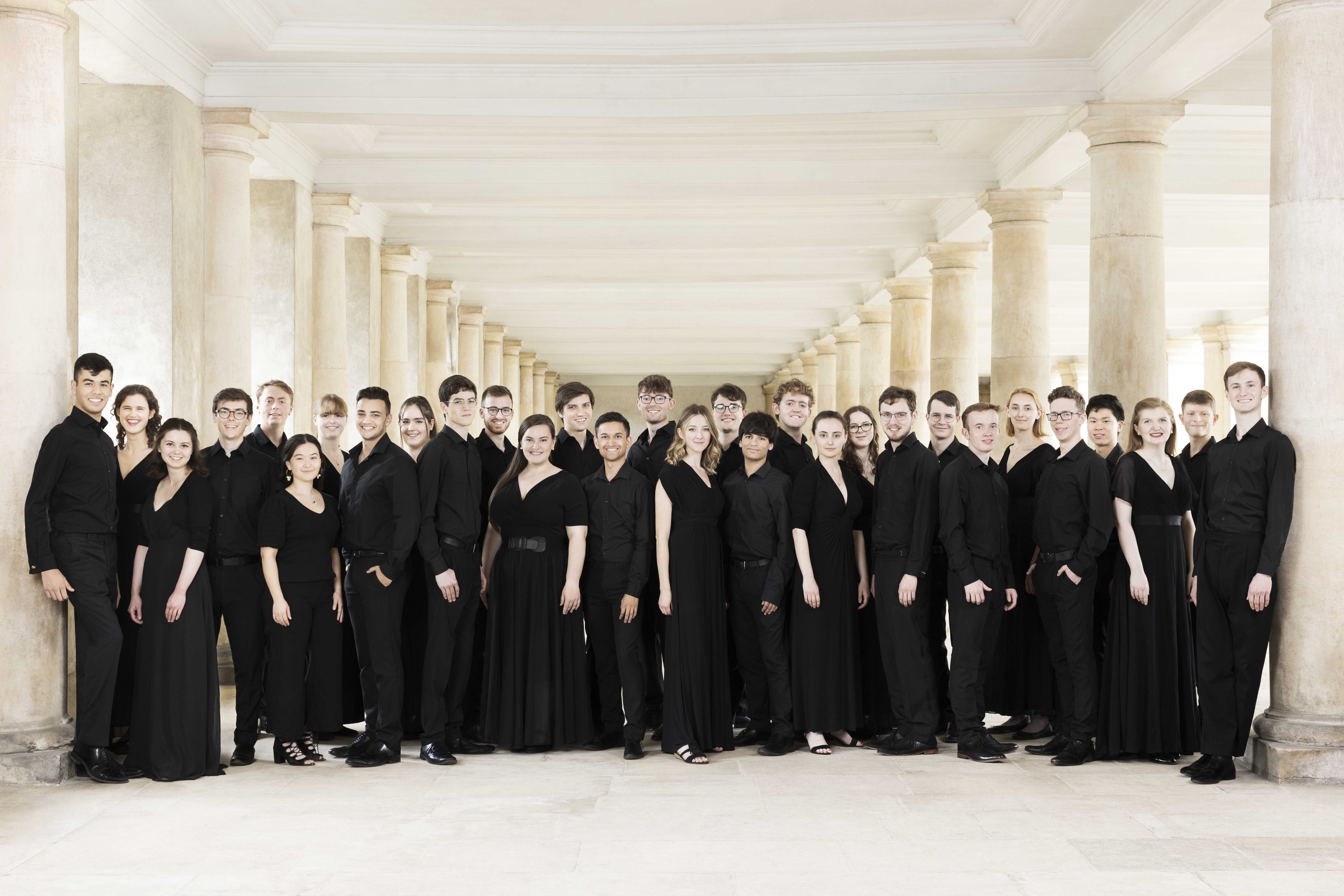Handel - Dettingen Te Deum - International Record Review
> See recording details...The festal D major Te Deum that Handel wrote in 1743 is known by the name of the battle of which it celebrated the English victory: Dettingen, on June 27th, 1743 – the last occasion on which a British monarch led his army into battle. Handel set to work on the Te Deum (the text is actually in English) soon after news of the defeat of the French reached London, and by late July his amanuensis John Christopher Smith was able to inform the Earl of Shaftesbury confidentially that Handel was well advanced on the composition of ‘a new Grand Te Deum and Jubilate’. The intended Jubilate did not materialise, but there was an additional celebratory work, The King shall Rejoice (HWV265), an anthem completed on August 3rd. Performance of these pieces was delayed by the king’s reluctance to return from Hanover, but they were finally herd at the Chapel Royal, St James’s, during morning service on Sunday, November 27th.
Listeners following the Crysander score will notice the omission of a four-bar repetition from the bass solo ‘When Thou tookest upon Thee’; whatever the reason, it is certainly not owing to any shortcoming in the bass Neal Davies, outstanding even among the fine soloists involved in the performance (and able to encompass the moods of the contrasting solos for which Handel employed two renowned singers at the première).
A splendid account of the Dettingen Te Deum and Anthem was until recently available form Simon Preston with the Choir of Westminster Abbey and The English Concert. There is also a recording, which I have not heard, by Diego Fasolis with Swiss forces (Arts).
Zadok the Priest, the most familiar of Handel’s four anthems for the coronation of George II in 1727, makes a spirited conclusion to the new Hyperion CD. There is no shortage of excellent recordings of this work (nearly 40 are listed in the Maze catalogue), but its combination with the Dettingen Te Deum and the organ concerto connected with Alexander’s Feast is without rival. Stephen Layton directs the distinctive and well-balanced mixed-voice Choir of Trinity College, Cambridge with excellent players from the Academy of Ancient Music in readings that are full of vigour and rhythmic bite, exquisitely offset by the gentler musings of the contrasting slower, lyrical passages.
Separating the two vocal works stands the Organ Concert No. 14 in A, a common practice of Handel’s being the insertion of a showpiece for himself as performer. Richard Marlow’s perceptive account of the Concerto includes two short improvisations. David Vickers provides an admirably full essay with this issue, the attractiveness of which is enhanced by the use of John Wootton’s canvas showing the king and his son, the young Duke of Cumberland, observing the course of the battle. The recording is of high quality; if some of the most stirring passages might threaten to lift the roof off Trinity College Chapel, just think what it must have been like in the Little Royal Chapel on November 27th, 1743, with the very large forces Handel had assembled!
Peter Branscombe

Hyperion Records CDA67678
